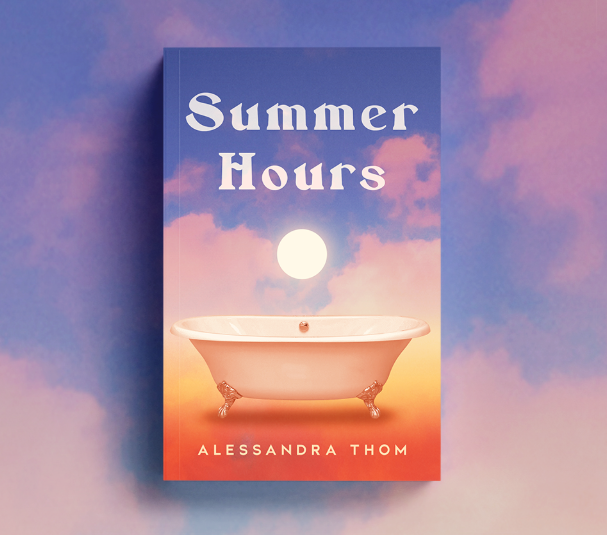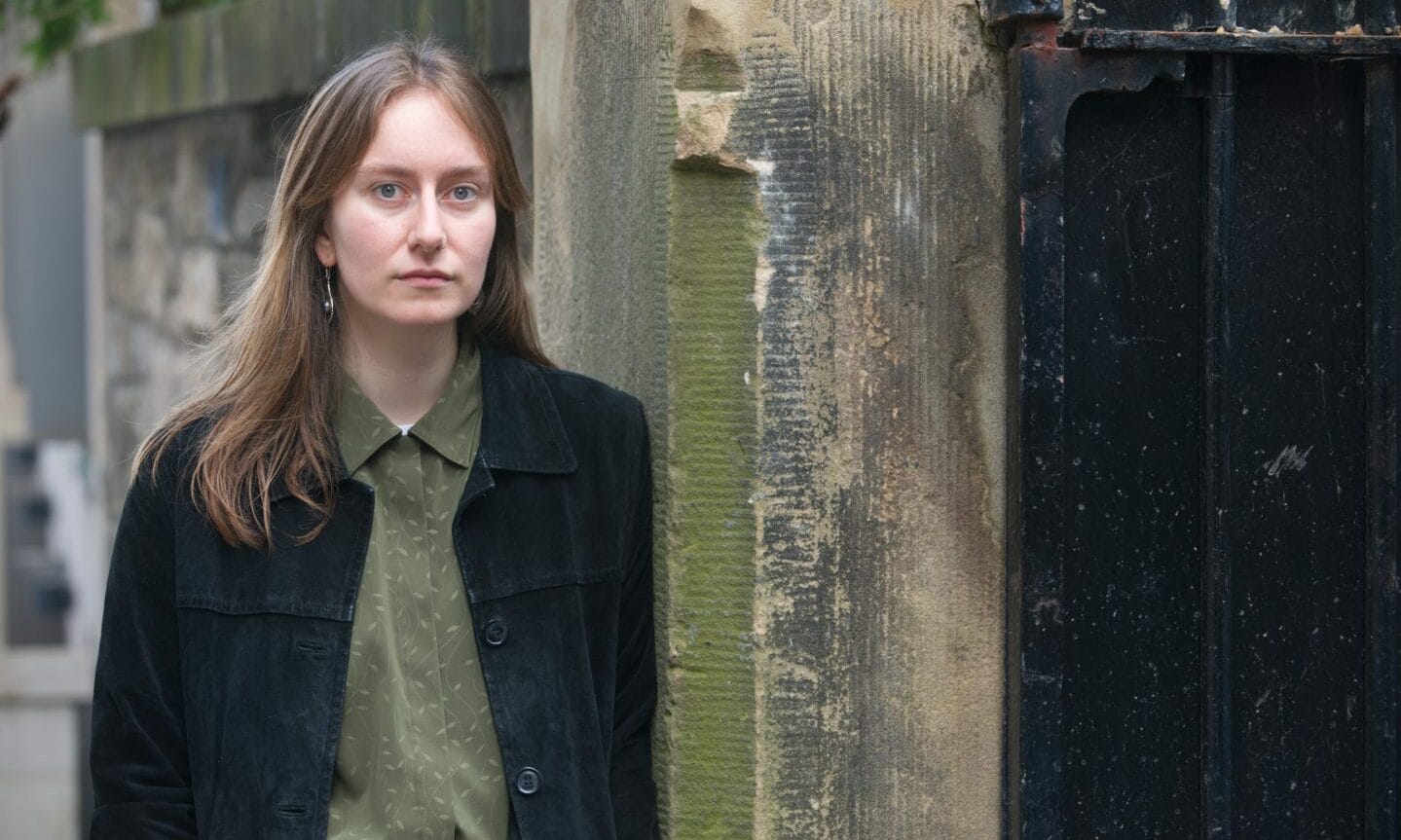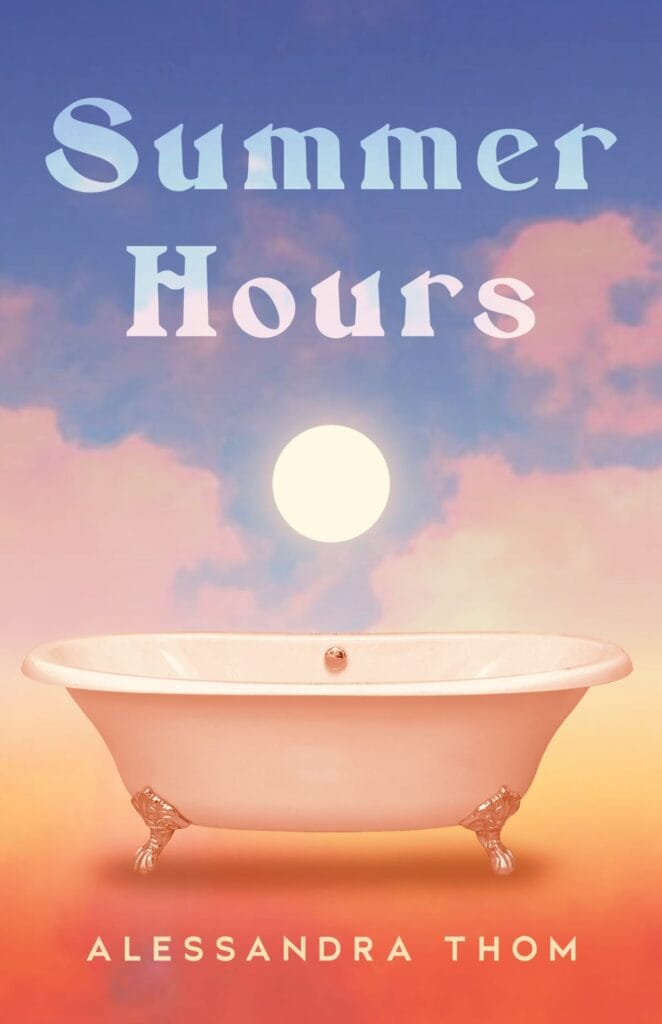Summer Hours by Alessandra Thom
Thom writes with precision and tenderness in equal measure—a formidable combination. One leaves Summer Hours slightly dazed, as if emerging from someone else's fever dream into the cold Scottish morning.

A Scorching Season of Desire and Drift
Alessandra Thom arrives on the novel scene trailing laurels from their native Scotland, where they've already garnered considerable acclaim. Summer Hours marks their debut in long-form fiction. This is a writer who understands complicated queer women in all their messy, magnificent glory.
Edinburgh shimmers through these pages like a lover you can't quite forget, backdrop and participant both in protagonist Roisin's tumultuous summer. Our heroine finds herself caught in that peculiarly queer purgatory between devotion and desire, tethered to her best friend Eve in ways that friendship alone cannot adequately name. Enter Claire, their moneyed mutual acquaintance, dangling financial salvation disguised as freelance employment. When fortune finally seems to smile on perpetually skint Roisin, she discovers—as one does—that Claire's proposition carries rather more strings than initially advertised. What unfolds is less a love triangle than a love trapezoid of obligation and longing. Caught between her all-consuming fixation on Eve and her increasingly compromising compact with Claire, Roisin must perform a precarious high-wire act, terrified of losing her grip on what little she holds dear. The resulting tangle of obsession and bewilderment feels bracingly, painfully real.

Thom demonstrates an almost preternatural gift for capturing that gossamer-thin boundary where female (and queer) friendship bleeds into something more carnal, more consuming. Eve, unmoored and unhoused, camps on Roisin's sofa. Roisin, meanwhile, perfects the art of self-abnegation—after all, where's the incentive in change? The novel pulses with the anxieties of our precarious age: housing instability, wealth disparity, the weight of familial expectation, the vertiginous uncertainty of young queer life. Yet Thom never lets the social commentary overwhelm the intimate. This is prose that can conjure atmosphere with a whisper while simultaneously excavating the eternal frictions between people who want too much from each other.
Blessedly concise, Summer Hours can be devoured in a single indulgent sitting—and you'll want to. The narrative propels you forward with an insistent rhythm, each page turn compulsive as a heartbeat. Yes, you'll find yourself watching rather unlikeable sweaty people make questionable choices, but Thom's third-person perspective grants us the voyeur's privilege, observing these souls with a mixture of judgment and unwilling recognition. Edinburgh itself becomes a character, its cobbled streets and hidden closes bearing witness to Roisin's question: Can she escape the holding pattern, or will she drift perpetually while others pilot her fate?
This is a coming-of-age story for those of us who know that coming of age isn't a destination but a recurring crisis. Thom writes with precision and tenderness in equal measure—a formidable combination. I left Summer Hours slightly dazed, as if emerging from someone else's fever dream into the cold Scottish morning.
Out now from all good bookshops £12.00

Support independent LGBTQ+ journalism
Scene was founded in Brighton in 1993, at a time when news stories about Pride protests were considered radical. Since then, Scene has remained proudly independent, building a platform for queer voices. Every subscription helps us to report on the stories that matter to LGBTQ+ people across the UK and beyond.
Your support funds our journalists and contributes to Pride Community Foundation’s grant-making and policy work.
Subscribe today




Comments ()